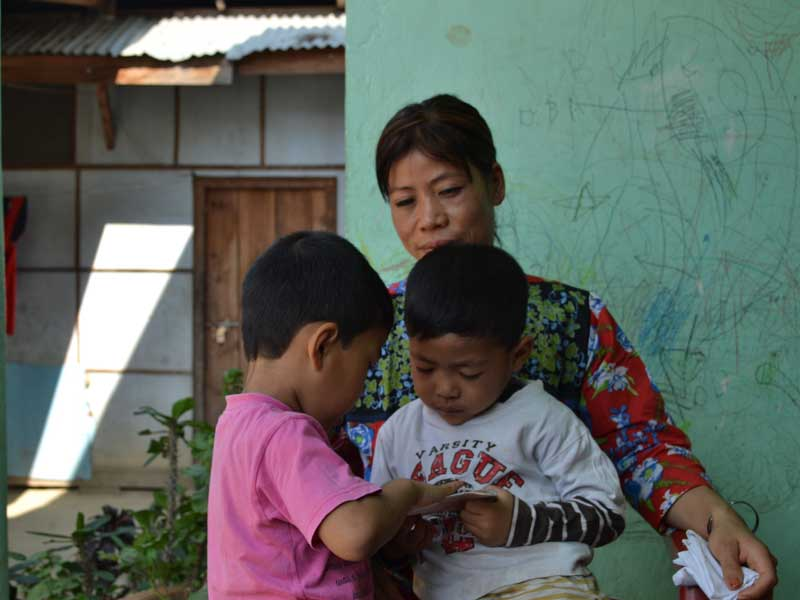Mary Kom’s Olympic medal celebration
Northeast India is now in the nation’s mind space. The violence in lower Assam. The exodus of people of Northeast origin from Hyderabad and Bangalore. A looming refugee crisis and knee jerk anti-foreigners drive in Manipur. All these have kept the region busy. It seems that MC Mary Kom’s Olympic medal celebration in Northeast is long due.
So what Mary Kom did for the Northeast – or to be precise for Manipur – remains under-reported. Not just Mary Kom, the three others from Manipur who made it to the Olympics – L Devendro Singh (boxing), Laishram Bombayala Devi (archery) and Ng Soniya Chanu (weightlifting) gave youngsters of Manipur something new to dream. Sports will not only get a living for their family, but also accolades and recognition.
As my journalist friend from Imphal Rajkumar Suresh Sigh puts it, Poverty is the biggest adversary of achievement. Ironically, the word ‘poor’ also can be a motivating factor for some people to attain success. The Manipuri Olympian is an embodiment of this thought. The story of Mary Kom’s humble background has been written over and over again. The story of a benign beginning for the other three sportsperson from Manipur who went London is no different from Mary’s.
Deprivation inspires them to accept challenges instead of fading away in oblivion. In doing so, these achievers become a great inspiration for others from the same background. Ethnic unrest, insurgency, counter insurgency and human rights violations, Manipur has it all. For its rural youths, poverty, lack of education and joblessness is the price for being born in Manipur. Their choices are limited. Either joins a rebel insurgent outfit or excels in sports to get a government job in sports quota.
For sports and music loving Manipur, a medal at the Olympic means not just fame and wealth but an inspiration to all the poor people of the world to succeed at the highest level and a motivation to keep on ‘dreaming’. And perhaps the dream is a contrast to the continuing bloodshed, strikes and protest the state has been over four decades.
Just before packing her bag for London Olympics, Mary Kom told us: “It never failed to amaze me how the sense of deprivation can drive you to your success. I remember my parents insisting me to leave the sport due to the financial burden. Sports is regarded as a leisure activity and it was not meant for the poor. If I had followed their advice I would have been ‘nobody’ toiling hard to make both ends meet. However, a sort of challenge developed in me to prove this notion wrong. So I adopted boxing as a means and I followed it with all my conviction. Even now, I have that conviction and I will not leave it until I win a medal at the Olympics.”
Sharing the same story, Ng Mangi spoke to us about how he used to toil as a manual labourer to support her daughter Ng Soniya Chanu, the youngest of seven siblings, in her dream to pursue weightlifting: “I have always known that Soniya was special kid, I didn’t have a decent job so it was really a struggle to support her dream and feed the rest of the family at the same time. So, I took every petty manual work available to get whatever money I can. But I have never regretted hoping that someday my daughter will bring pride to me.” Indeed Ng Soniya Chanu, who is currently working as an inspector in UP Police, did bring pride to her family. For the poverty striken family a modest job with UP Police was like manna dew from the heaven.
Success was not really a cakewalk for archer Laishram Bombayala Devi and boxer Laishram Devendro Singh. “I have been fortunate compared to other sportspersons from Manipur who had to struggle hard or leave the game for financial reason. But in way I did faced some discouraging moments, I have been told often that I cannot make a living in sports during the initial stage of my career in sports. In a way, those people were only reminding me of the general perception of sports in our society. Every parents hope that someday their children will become a doctor or an engineer instead of an archer or a boxer so that they can earn enough money to lead a comfortable life,” says Bombayala Devi.
In rural Manipur many young Marys and Devendros are trafficked, lured by the rebels to become child soldiers. Their athlete built is used in nation’s destruction. The medals and struggles of the Manipuri sportsmen would, perhaps, change that scene for good.

No comments:
Post a Comment